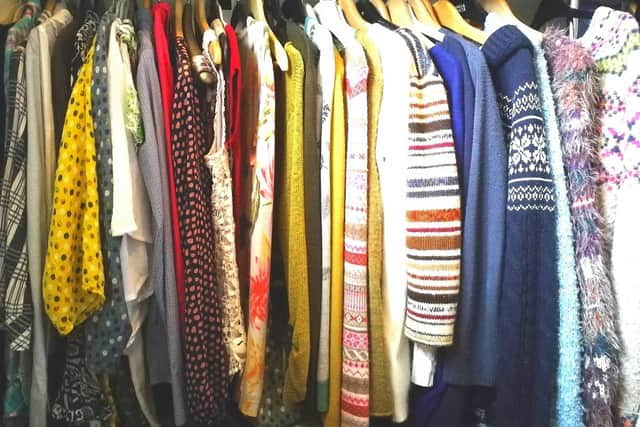Horsham District people urged to reduce impact of fast fashion
and live on Freeview channel 276
The World Wildlife Fund estimates that it takes almost 3,000 litres of water to make a cotton shirt – more than one person’s drinking water for 2.5 years – and the heavy use of pesticides, insecticides, chemicals, dyes and fuel in the manufacture pollute air, crops and water sources. Some popular brands have been exposed to be exploiting under-paid and under-protected staff and most of our clothes are made overseas, meaning that they travel thousands of miles - adding to pollution. The more we buy, the more we contribute to all these problems.
The term ‘fast fashion’ describes the way most clothing stores operate. Cheap garments are produced in vast quantities so shops can continually sell new products. By keeping production costs to an absolute minimum, clothing retailers are able to make a profit, encouraging customers to buy more to keep up with short-lived trends.
Advertisement
Hide AdAdvertisement
Hide AdAn effective way to help fashion become more sustainable is to extend the ‘use’ stage of a garment’s timeline. By purchasing items second-hand, organising clothes swaps, passing on hand-me-downs, and mending or upcycling damaged garments, the number of times that a new product is made and transported is reduced. Not only does this approach to fashion reduce the environmental costs of the clothes we wear, it also saves us money.


Bags of Support, based in Partridge Green, was founded by one of the SGL trustees, and is a great social and environmental business dedicated to re-homing clothes collected by schools. The charity raises money for the schools involved and also helps support a community in Nkuringo, Uganda as well as orphans in Romania.
New fashion business using bamboo or cork instead of more conventional materials are exploring more sustainable alternatives, while some high-street stores like H&M and M&S run recycling schemes and ‘conscious’ ranges. Locally, Horsham entrepreneur Oisin (oisinclo.com) sells T-shirts where every aspect is ethically considered, from the cellulose packaging to paper labels, developing more sustainable wear and for your well-loved clothes in need of a new lease of life, the monthly Horsham Repair Café service is always available.
SGL has produced a short video for primary children and another for adults. www.sussexgreenliving.co.uk/videos/
Advertisement
Hide AdAdvertisement
Hide AdWe also offer a guide and game here: www.sussexgreenliving.co.uk/resources/.
www.horshamrepaircafe.org.uk/
Youth Eco Forum for ages 11+ meets on Sundays at 6pm. Book your ticket here:
www.sussexgreenliving.co.uk/youth-eco-forum/